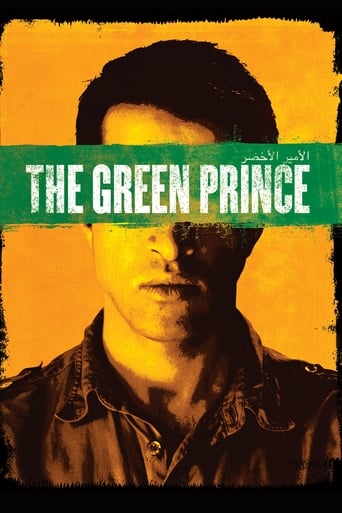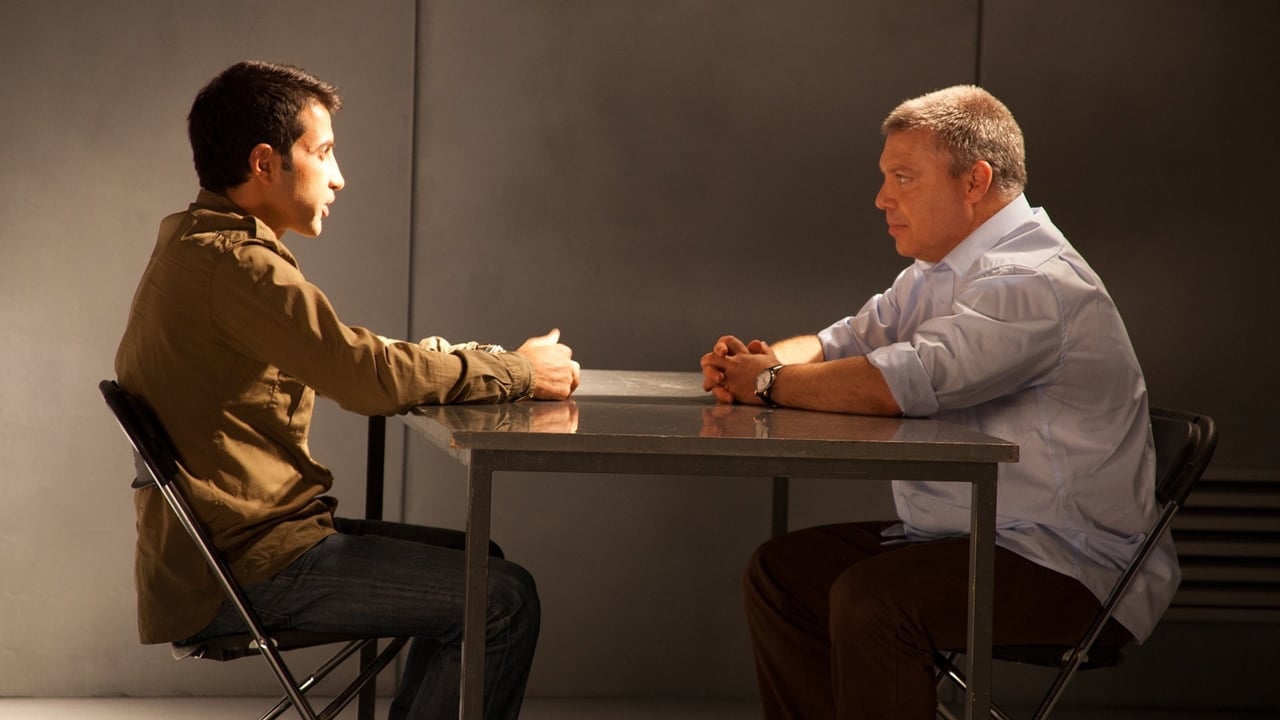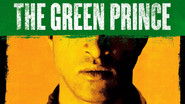rbstern
Some will see this film as one-sided view of the Israeli-Palestinian conflict. I think that's the wrong way to view it.This is the story of a relationship between two men who would normally be mortal enemies, like so many of their peers in their respective societies. Both men are intent on stopping needless killing. They chose very different paths to that end.The insight this film provides is in describing the incredibly difficult tensions both men must deal with to carry out their missions. Mosab has to betray Hamas to redeem his sense of humanity, Gonen has to betray his own sense of humanity to get Mosab to perform, and eventually has to betray Shin Bet to save Mosab and redeem himself.The most palpable feeling I had while watching this film was how isolated and alone Mosab must have felt, and probably still feels. He chose a very lonely path in life. A path I think very few human beings could handle, in terms of pressure and emotional pain. He's a truly unique person.
punishable-by-death
What we have here is what at first seems like an interesting doco about Mosab Hassan Yousef, the son of the founder of HAMAS, who decided that, as the eldest of the sons, he was to take a stand against the violence of HAMAS once he witnessed their methods of violence. Personally I can't understand how one man can decide to betray and shame his family and culture, as if he alone could make a difference, but that is how the story goes. It quickly becomes repetitive and obvious it has an agenda of some kind, as the film is extremely pro-Israel. This is borderline-propaganda really, as not only is it biased 100% towards Israel, there is zero input from the side of HAMAS, or even Palestinian citizens.Furthermore, the film conveniently glosses over the provocative behaviour by Israel that lead to the creation of HAMAS originally. Instead, it carefully chooses video snippets of Mosab's father Sheikh Hassan Yousef to paint a picture of an evil terrorist who created a purely evil group. His convictions and reasons for forming such a radical group are not explored thoroughly at all; the little we do hear is again pro-Israel and anti-truth.The film makes a big deal about how tough Mosab's decision was to 'go public', supposedly risking his life. Yet he has written his own book, and must be alive and well, able to capitalise on the book by taking it to the big screen within four years. The fact that no attempts at all have been made on his life is literally unbelievable, especially after we are told how risky and life changing it supposedly would be for him to go public. If any attempts have been made on his life, the film doesn't let you know. This then is essentially a filmed wikipedia entry, complete with overwhelming bias, missing key points of the story, as well as intentional ignorance, in this case: Israel's confrontational and provocative behaviour.As a story, it is certainly fantastic, better than most films that cover similar ground. But this is a documentary, one that is very hard to believe in its entirety; especially due to the overwhelming bias on Isreal's behalf and the condemning of HAMAS and Palestine in general, as their constant struggle isn't recognised at all by the filmmakers. They are painted as the bad guys, with no input from them even attempted. The fact that this 'documentary' even made it to screens in my city is a testament to the western bias of the film from beginning to end. There are free films on the internet that are far, far better than this one-sided sob story.One has to wonder: Would a similar story from the opposite 'side' be permitted to be turned into a film, let alone be screened in Western countries? Any interesting cinematography is non-existent, with much of the movie being Mosab's face or his handler's face in front of a grey background. There aren't even changes of angle, just two faces talking at you for about two-thirds of the film. No attempt at all is made to re-enact the story through actors. When it isn't a face talking directly to the camera as if it were made for YouTube, which is what it does look like, there are small random snippets of video footage of Mosab's father, of Mosab, still photos of his father and cold, emotionless night vision footage taken from a helicopter showing the same scene several times over, without it being explained in any way at all.If you know the story already then there isn't anything to see here to see at all, don't waste your time. It really does feel like an amateur documentary made for YouTube, and the fact that they are able to charge people to watch this is incredible to me. I have never wanted my money back after seeing a 'film', but this is one giant freaking exception.The documentary is evolving, from the interesting, varied and well shot Tim's Vermeer to semi-documentaries such as 20,000 Days on Earth that push the envelope of where non-fiction film can go. This doesn't even come close to keeping up, the only envelope being pushed here is one of bias and ignorance.1/5 – Truly a waste of time. I have never given a film such a low score, but this is generous considering this entire film belongs on the internet as a free watch, not as a feature film.
jakob13
As violence in Jerusalem increases, you may want to see a 2014 Sundance prizewinning documentary that the Village Cinema is holding over for another week: Nadav Schirman's Green Prince, an intriguing, edge-of-the-seat thriller, based on Mosab Hassan Yousef's Son of Hamas: a gripping account of terror, political intrigue and unthinkable choices. El Emir Akhdah is the story of the oldest son of founding Hamas member Sheikh Hassan Yousef, arrested by Israel's Shin Bet in 1999 during the Second Intifida. The secret service, not believing its good luck, managed to induce the 17-year-old to become a "sleeper agent." During 10 years, he proved very effective "mole;" as his father's eldest son he assisted his father in his political activities; and had entrée to Hamas highest leadership circles. From his privileged status, he kept a certain pulse of what seems a war without a solution between Israel and a Palestinian political entity.Shin Bet ennobled him with the sobriquet El Emir Akhdah or Green Prince. Truly, for them, he was a sparkling jewel in the dark art of spying. And as such, over time, they schooled in the craft of intelligence, thereby turning him into a finely honed instrument at the service of Israel's intelligence agency.In the world of Palestinian and Israeli cinema, the Green Prince is not the first film that deals with turning Palestinians into collaborators.Although in a very limited run, 2014 saw Hany Abu-Assad's Omar and Yuval Adler's Jerusalem. One is a realistic view of "how a highly aware Palestinian defines himself," according to Omar's co-author Ali Waked, that endows its protagonist Arab or Jew with a human face under an regime of occupation approaching a half-century. The other is a stock action film, less complex that ably serves Israeli interests. Given the subject matter, the more sophisticated Green Prince, too, serves Israeli propaganda purposes. Shirman's documentary has the feel of a representation as though Hosab and his Shin Bet handler Gonan Ben Yitzhak were appearing on a stage, but with the flexibility and liberty of the camera that breathes fuller life to Hosab's odyssey. The closer he becomes to Ben Yitzhak, the younger Yousef bonds psychologically with his handler—otherwise known as Stockholm Syndrome—of what he sees as the barbarity and futility of Hamas' armed resistance. Unsurprisingly, this management of a "turncoat" transforms a friendship, seemingly based on shared experience if not exactly belief, contrary to his Shin Bet training and unwritten code. Strategically, Schirman juxtaposes scene of talking heads with Shin Bet archival material of secret drone shots of Hosab's movements that render more immediate the covert hold the secret service had on him.This language of hidden images brings to mind Dror Moreh fascinating documentary detailing the highly sophisticated surveillance network that the Shin Bet has perfected to track its own Arab citizens as well as Palestinian Arabs in the Palestinian territories that it has occupied for almost a half-century. And yet, despite Israel's vast spy and military enterprise to achieve its goals of defeating Hamas, Shin Bet was caught by surprise by the unexpected outbreak of the first Intifida, as though the work of 40 odd years of population control had become a soured dream. As the Green Prince, Omar and Jerusalem end in one tragedy or another: the cooperation wittingly or not with "an enemy of one's country" ends in death or exile. After 10 years of unflinching service to his Shin Bet masters El Emir Akhdah wanted out, but the secret service was unwilling to release him. Whilst on a visit to the US, he applied for political asylum; Israel informed Homeland Security that he was a son of a noted Hamas terrorist. Having confessed to his father that he intended to defect, the US government was on the point of deported him to Jordan which would mean certain death. The ties of friendship that held Ben Yitzhak to Hoseb fostered a generosity of spirit and humanity by what should have been seen as a relation between "occupier" and "occupied," was in reality a fondness and an expression of good will. So, unwillingly to see his friend "betrayed" after loyal service to Israel, Ben Yitzhak "outed" himself as a Shin Bet agent, flew to the US and testified to Hosab's decade service as a deep under cover agent.In spite of the excellence of Schirman's film, it is a-historic, since it provides no context for why the Second Intifada occurred. And the germ of that uprising lay in the Temple Mont that prime minister Ariel Sharon chose to visit as an expression of Jewish Israeli right to seemingly pray in Islam's third holiest site, Dome of the Rock or Al Aksaa Mosque.Today, right-wing Jewish fanatics insist on praying in the Mosque. Once again, it seems as though we are witnessing a replay of Sharon's provocative visit to the Temple Mont. Should we expect a Third Intifada, so quick on Israel's war in June 2014 against Hamas in Gaza—a war that ended, as it usually does in terrible civilian deaths and a political stalemate.In the end Green Prince, no matter how polished a film it is, remains one sided and a distortion of the lethal reality in Israel and its occupation of the Palestinians and their territory.
ilania_a
This was the opening film at the 34th San Francisco Jewish Film Festival, and what a good choice it was! It is a documentary, of which there were quite a few in this edition of the festival, however, this was not a regular documentary - it left a very strong impact.Before the film the Director, Nadav Schirman, came on stage and explained that this is a film about two people who have learnt to trust each other. Of course it is much more than that - it is an eye opener! But this is for each of us to reflect upon.From the first shot of Mosab on screen looking straight at the audience with his piercing, expressive eyes I was mesmerized. After the film, the two main personalities came on stage: Mosab Hassan Yousef, the author of the book "Son of Hamas" on which this film was based, and Gonen Ben Yitzhak, his spy handler. The film moved back and forth in time, recounting the events of a ten-year period, since Mosab was seventeen. A time in which he was constantly in danger or in prison. After the film screening, Mosab Hassan Yousef explained that he was striving to avoid unnecessary killings saying: "We are all children of the Devine".



 AD
AD



